Consciousness Control Theories and Techniques used by Mass Media (1)
Mass media is the most powerful tool used by the ruling class to manipulate the masses. It shapes and molds opinions and attitudes and defines what is normal and acceptable. This article looks at the workings of mass media through the theories of its major thinkers, its power structure and the techniques it uses, in order to understand its true role in society.
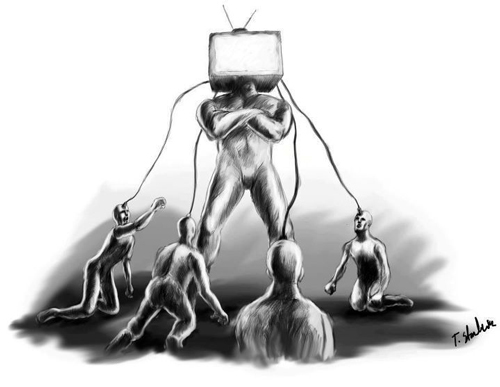
Many articles on this site discuss occult symbolism found in objects of popular culture. From these articles arise many legitimate questions relating to the purpose of those symbols and the motivations of those who place them there, but it is impossible to provide satisfactory answers to these questions without mentioning many other concepts and facts. We’ve therefore decided to present this article to supply the theoretical and methodological background of consciousness control used by mass media as well as introducing the main scholars of the field of mass communications. Some people who read our articles may think we’re saying “Lady Gaga wants to control our minds”. However, she is simply a small part of the huge system that is the mass media.
Programming through Mass Media
Mass media are media forms designed to reach the largest audience possible. They include television, movies, radio, newspapers, magazines, books, records, video games and the internet. Many studies have been conducted in the past century to measure the effects of mass media on the population in order to discover the best techniques to influence it. From those studies emerged the science of communications, which is used in marketing, public relations and politics. Mass communication is a necessary tool to insure the functionality of a large democracy; it is also a necessary tool for a dictatorship. It all depends on its usage.
In the 1958 preface for A Brave New World, Aldous Huxley paints a rather grim portrait of society. He believes it is controlled by an “impersonal force”, a ruling elite, which manipulates the population using various methods.
“Impersonal forces over which we have almost no control seem to be pushing us all in the direction of the Brave New Worldian nightmare; and this impersonal pushing is being consciously accelerated by representatives of commercial and political organizations who have developed a number of new techniques for manipulating, in the interest of some minority, the thoughts and feelings of the masses.”– Aldous Huxley, Preface to A Brave New World.
His bleak outlook is not a simple hypothesis or a paranoid delusion. It is a documented fact, present in the world’s most important studies on mass media. Following are some of them.
ELITE THINKERS
Walter Lippmann
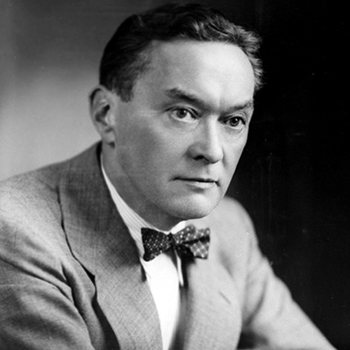
Walter Lippmann, an American intellectual, writer and two-time Pulitzer Prize winner brought forth one of the first works concerning the usage of mass media in America. In Public Opinion (1922), Lippmann compared the masses to a “great beast” and a “bewildered herd” that needed to be guided by a governing class. He described the ruling elite as “a specialized class whose interests reach beyond the locality.” This class is composed of experts, specialists and bureaucrats. According to Lippmann, the experts, who often are referred to as “elites,” are to be a machinery of knowledge that circumvents the primary defect of democracy, the impossible ideal of the “omnicompetent citizen.”
The trampling and roaring “bewildered herd” has its function: to be “the interested spectators of action,” i.e. not participants. Participation is the duty of “the responsible man”, which is not the regular citizen.
Mass media and propaganda are therefore tools that must be used by the elite to rule the public without physical coercion. One important concept presented by Lippmann is the “manufacture of consent”, which is, in short, the manipulation of public opinion to accept the elite’s agenda. It is Lippmann’s opinion that the general public is not qualified to reason and to decide on important issues. It is therefore important for the elite to decide “for its own good” and then sell those decisions to the masses.
“That the manufacture of consent is capable of great refinements no one, I think, denies. The process by which public opinions arise is certainly no less intricate than it has appeared in these pages, and the opportunities for manipulation open to anyone who understands the process are plain enough… as a result of psychological research, coupled with the modern means of communication, the practice of democracy has turned a corner. A revolution is taking place, infinitely more significant than any shifting of economic power… Under the impact of propaganda, not necessarily in the sinister meaning of the word alone, the old constants of our thinking have become variables. It is no longer possible, for example, to believe in the original dogma of democracy; that the knowledge needed for the management of human affairs comes up spontaneously from the human heart. Where we act on that theory we expose ourselves to self-deception, and to forms of persuasion that we cannot verify. It has been demonstrated that we cannot rely upon intuition, conscience, or the accidents of casual opinion if we are to deal with the world beyond our reach.” – Walter Lippmann, Public Opinion.
It might be interesting to note that Lippmann is one of the founding fathers of the Council on Foreign Relations (CFR), the most influential foreign policy think tank in the world. This fact should give you a small hint of the mind state of the elite concerning the usage of media.
“Political and economic power in the United States is concentrated in the hands of a ‘ruling elite’ that controls most of U.S.-based multinational corporations, major communication media, the most influential foundations, major private universities and most public utilities. Founded in 1921, the Council of Foreign Relations is the key link between the large corporations and the federal government. It has been called a ‘school for statesmen’ and ‘comes close to being an organ of what C. Wright Mills has called the Power Elite – a group of men, similar in interest and outlook shaping events from invulnerable positions behind the scenes’. The creation of the United Nations was a Council project, as well as the International Monetary Fund and the World Bank.” – Steve Jacobson, Mind Control in the United States.
Some members of the CFR include Rockefellers, Dick Cheney, Barack Obama, Hilary Clinton, mega-church pastor Rick Warren and the CEOs of major corporations such as CBS, Nike, Coca-Cola and Visa.
Carl Jung
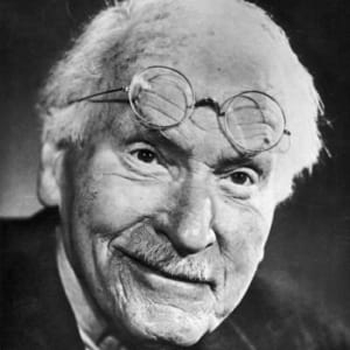
Carl Jung is the founder of analytical psychology (also known Jungian psychology), which emphasizes understanding the psyche by exploring dreams, art, mythology, religion, symbols and philosophy. The Swiss therapist is at the origin of many psychological concepts used today such as the Archetype, the Complex, the Persona, the Introvert/Extrovert and Synchronicity. He was highly influenced by the occult background of his family. Carl Gustav, his grandfather, was an avid Freemason (he was Grand Master) and Jung himself discovered that some of his ancestors were Rosicrucians. This might explain his great interest in Eastern and Western philosophy, alchemy, astrology and symbolism. One of his most important (and misunderstood) concept was the Collective Unconscious.
“My thesis, then, is as follows: In addition to our immediate consciousness, which is of a thoroughly personal nature and which we believe to be the only empirical psyche (even if we tack on the personal unconscious as an appendix), there exists a second psychic system of a collective, universal, and impersonal nature which is identical in all individuals. This collective unconscious does not develop individually but is inherited. It consists of pre-existent forms, the archetypes, which can only become conscious secondarily and which give definite form to certain psychic contents.”– Carl Jung, The Concept of the Collective Unconscious.
The collective unconscious transpires through the existence of similar symbols and mythological figures in different civilizations. Archetypal symbols seem to be embedded in our collective subconscious, and, when exposed to them, we demonstrate natural attraction and fascination. Occult symbols can therefore exert a great impact on people, even if many individuals were never personally introduced to the symbol’s esoteric meaning. Mass media thinkers, such as Edward D. Bernays, found in this concept a great way to manipulate the public’s personal and collective unconscious.
Edward Bernays
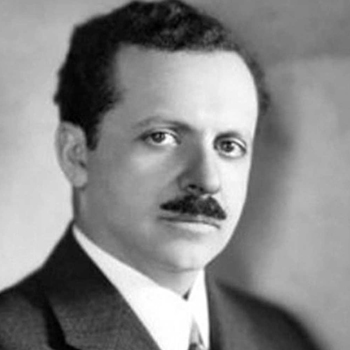
Edward Bernays is considered to be the “father of public relations” and used concepts discovered by his uncle Sigmund Freud to manipulate the public using the subconscious. He shared Walter Lippmann’s view of the general population by considering it irrational and subject to the “herd instinct”. In his opinion, the masses need to be manipulated by an invisible government to insure the survival of democracy.
“The conscious and intelligent manipulation of the organized habits and opinions of the masses is an important element in democratic society. Those who manipulate this unseen mechanism of society constitute an invisible government which is the true ruling power of our country.
We are governed, our minds are molded, our tastes formed, our ideas suggested, largely by men we have never heard of. This is a logical result of the way in which our democratic society is organized. Vast numbers of human beings must cooperate in this manner if they are to live together as a smoothly functioning society.
Our invisible governors are, in many cases, unaware of the identity of their fellow members in the inner cabinet.” – Edward Bernays, Propaganda.
Bernay’s trailblazing marketing campaigns profoundly changed the functioning of American society. He basically created “consumerism” by creating a culture wherein Americans bought for pleasure instead of buying for survival. For this reason, he was considered by Life Magazine to be in the Top 100 most influential Americans of the 20th century.
Harold Lasswell
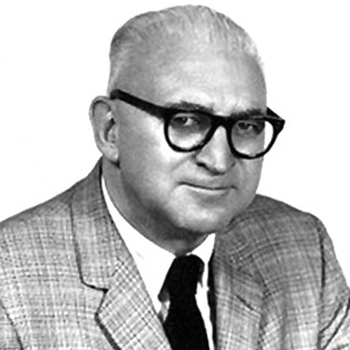
In 1939-1940, the University of Chicago was the host of a series of secret seminars on communications. These think tanks were funded by the Rockefeller foundation and involved the most prominent researchers in the fields of communications and sociological studies. One of these scholars was Harold Lasswell, a leading American political scientist and communications theorist, specializing in the analysis of propaganda. He was also of the opinion that a democracy, a government ruled by the people, could not sustain itself without a specialized elite shaping and molding public opinion through propaganda.
In his Encyclopaedia of the Social Sciences, Lasswell explained that when elites lack the requisite force to compel obedience, social managers must turn to “a whole new technique of control, largely through propaganda.” He added the conventional justification: we must recognize the “ignorance and stupidity [of] … the masses and not succumb to democratic dogmatisms about men being the best judges of their own interests.”
Lasswell extensively studied the field of content analysis in order to understand the effectiveness of different types of propaganda. In his essay Contents of Communication, Lasswell explained that, in order to understand the meaning of a message (i.e. a movie, a speech, a book, etc.), one should take into account the frequency with which certain symbols appear in the message, the direction in which the symbols try to persuade the audience’s opinion, and the intensity of the symbols used.
Read the second part of the article
yogaesoteric
June 22, 2019
